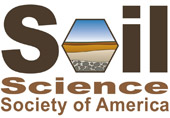91549 Restoration of Grassland Ecosystem Function and Socio-Ecological Resilience.
See more from this Division: ConnectivitySee more from this Session: Connectivity
Thursday, May 21, 2015: 3:30 PM
While modern technology, knowledge, and organization have greatly increased agricultural productivity, traditionally there has been insufficient regard for sustainability and overall efficiency. In contrast, leading environmentally conscious farm and ranch managers are demonstrating how it is possible to achieve desired environmental goals while simultaneously improving livelihoods. The results obtained from reductionist science and experience do not translate automatically into producing desirable results from grazing land ecosystems, especially across regions or at watershed scales. Leading managers achieve superior results by the way they allocate resources, use different technologies and knowledge, and adaptively change these elements as circumstances warrant. They integrate knowledge from many disciplines and sources to manage their unique landscapes by adjusting the combinations of multiple factors. If we are to help more managers achieve superior results we need to conduct integrative and multi-disciplinary research to understand what combinations of components, operations and strategies are required to achieve desired ecological, economic, and social goals on managed landscapes. In this paper we indicate how we have combined small-scale, short-term research within a complementary whole-systems research framework to include the human element of the manager.
See more from this Division: ConnectivitySee more from this Session: Connectivity
